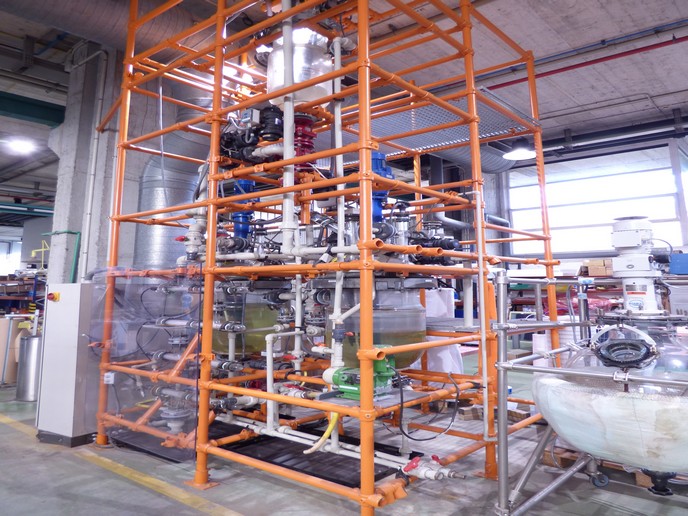Recovery of critical raw materials in a circular economy
The list of critical raw materials(opens in new window) for the EU now numbers 34. These materials are of high importance to the EU economy, but their supply is at risk. Tungsten, niobium and tantalum are among them. Recovering these metals from pre-consumer scrap and processing waste will not only increase Europe’s strength and independence but also make an important contribution towards a zero-waste economy. The goal of the EU-funded TARANTULA(opens in new window) project was to support this effort by developing a toolkit of novel, efficient and flexible metallurgical technologies with high selectivity and recovery rates for tungsten, niobium and tantalum.
Small quantities of essential metals without substitute
Tungsten, niobium and tantalum are refractory metals characterised by their extraordinary resistance to heat and wear. They are essential to many critical applications(opens in new window) including wind power, robotics, 3D printing and digital technologies. There are no viable substitutes and, without them, the supply of products including cutting tools and dies, turbine engines, traction motors, drones and microelectronics would be threatened. According to project coordinator Lourdes Yurramendi of TECNALIA Research and Innovation(opens in new window), “Despite having the largest tungsten resources and reserves, China has become a net importer(opens in new window) of tungsten ores and concentrates. The EU’s primary production of tungsten ore(opens in new window) – mainly in mines located in Austria, Portugal and Spain – covers only a limited part of EU domestic demand. Similarly, although it has some niobium deposits, the EU does not produce any niobium ore and is entirely reliant on imports(opens in new window). Indeed, deposits in Brazil cover over 90 % of EU – and global niobium demand. The EU also imports 100 % of its tantalum, mainly from Africa. Finding alternative, secondary sources of tungsten, tantalum and niobium is paramount.”
Anthropogenic sources in a zero-waste economy
Conventional mining secures primary raw materials from deposits. Secondary raw materials are mined and processed from anthropogenic waste. TARANTULA ‘mines’ tungsten, niobium and tantalum from industrial scrap and waste from the processing of mined ore (tailings and slags). Deep eutectic solvents facilitated the separation of more than 90 % of the tungsten in industrial process residues and tailings at lab scale. Subsequent solvent extraction with ionic liquids enabled recovery of over 99 % of the extracted tungsten (in the form of tungsten oxide). “TARANTULA’s findings support the process’ potential to deliver a sustainable annual supply of tungsten equivalent to 50 % of the EU’s current primary production,” Yurramendi notes. Niobium and tantalum are often present in the same sample. The project’s multi-step technology can recover both as separated marketable products. The team believes optimisations will enable achieving high-quality tantalum and niobium equivalent to at least 120 % and 5 % of the EU’s annual demand, respectively.
Ramping up technological readiness
“We developed and tested several eco-friendly and scalable technologies. A combination of ionometallurgy and electrometallurgy was the best from technical, economic and environmental perspectives. The most promising technologies were further upscaled and optimised in our prototype. It was designed to produce metal oxides at a kilogram-per-day capacity, with products meeting the commercial specifications of their broadest market segments thanks to rigorous testing,” adds Yurramendi. The team is already showcasing their recycled materials in oxide-based coatings from each of the three and a tungsten carbide-based coating, currently at lab scale. TARANTULA’s outcomes will boost EU strategic autonomy and strength in competitive markets while reducing waste.







